Founded in 2019 and led by CEO Dominik Gazdoš, Bookbot sells second-hand books, ensuring that unwanted books quickly find new readers and owners.
Its offerings include literary classics, bestsellers, rare finds, cult comics, young adult novels, and specialist publications.
Bookbot carefully photographs each book in high quality so customers can easily assess their condition. With an organised inventory, they can prepare books for viewing or ship them immediately.
After its foundation and a rapidly unfolding success story that made Bookbot the biggest seller of second-hand books in the Czechia, Bookbot expanded to Slovakia in 2022, to Austria in the summer of 2023 and to Germany in the fall of 2023.
In total, Bookbot has sold more than 5 million books since it was founded.
While many are being sent traditionally via mail, Bookbot offers two additional ways for customers to hand in their used books: in Vienna, Bookbot cooperates with Thalia, Europe’s leading book retailer, whose stores operate as drop-off points for books, while in both Vienna and Berlin, Bookbot offers the “Book-Bote” service that picks up books directly from people’s homes during self-chosen pick-up slots in cooperation with sustainable urban logistics expert DODO.
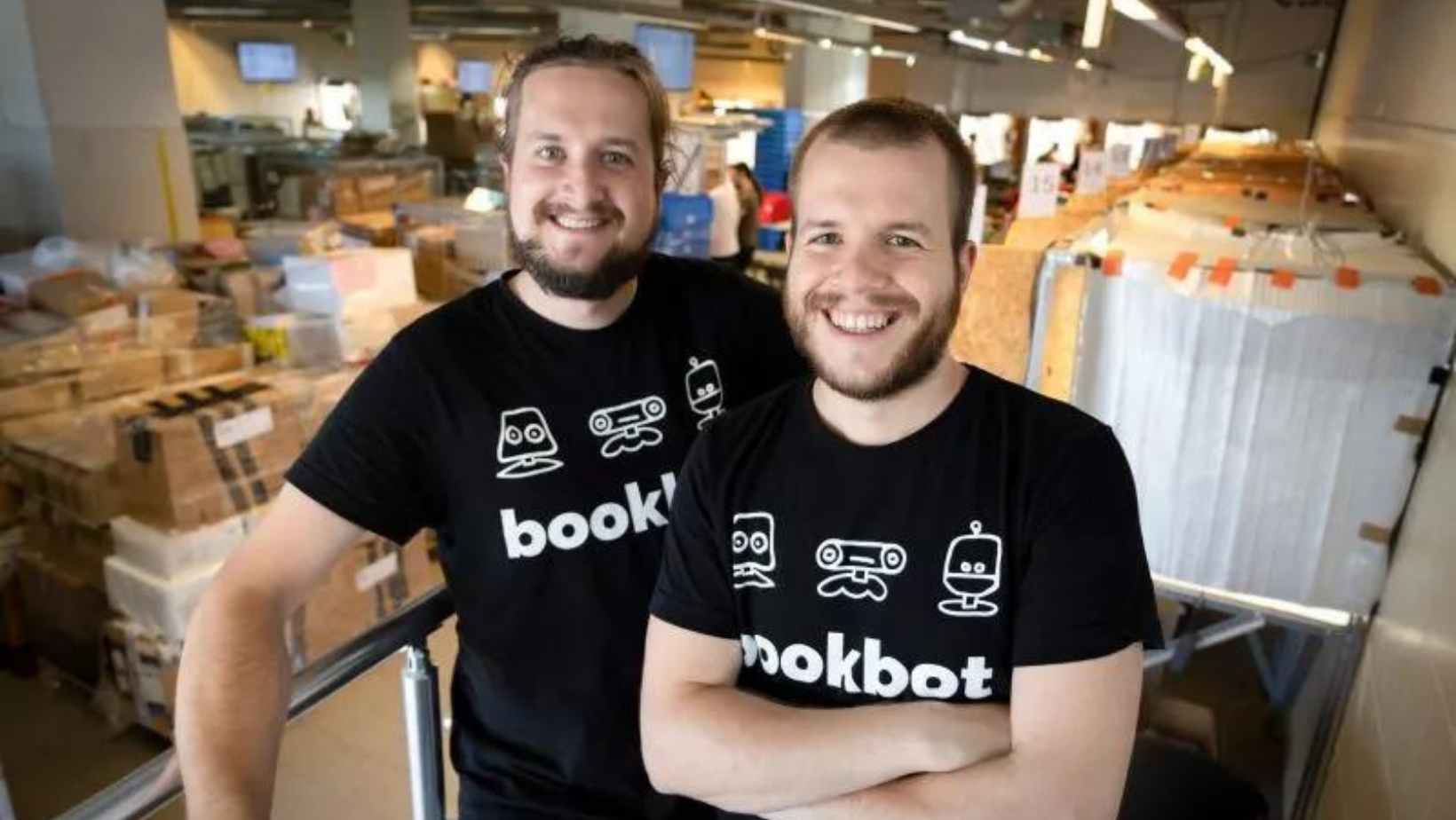
A new €4 million Series A funding round
Bookbot recently announced a €4 million Series A funding round at a valuation of over €20 million led by new investor Genesis Growth Equity Fund I with the participation of existing shareholder Miton.
Dominik Gazdoš, CEO of Bookbot, says, “We are convinced that in order to create a first-choice product for second-hand goods on the market, we have to be radically customer-centric. That is why we spend a lot of time speaking with our customers to identify practical and innovative technical solutions that make our service as comfortable and easy as possible.”
“We are readily equipped to accelerate growth in the DACH market and beyond and will do so through systematically erasing the pains often falsely associated with second-hand by creating a top-notch customer experience. We’re happy to have the support of Genesis and Miton on this journey.”
Reportedly, Bookbot anticipates doubling its revenue to €24M by the end of 2024, with the DACH market projected to account for 50 per cent of the company’s total revenue in 2025, just two years after its launch in the region.
Would you like us to write about your business? Find out more
This year has seen a remarkable surge in Czech tourists visiting the Polish Baltic Sea coast, with over 550,000 Czech nationals choosing this destination so far.
Pavel Trojan, director of the Foreign Centre of the Polish Organization in Prague, highlighted this unprecedented influx, noting that it surpassed even the most optimistic predictions.
In an interview with Polish Radio 24, Trojan pointed out that the growing trend of Czechs vacationing in Poland has been consistent over the years, with the Baltic coast and sightseeing tours being the most popular choices.
But he said he was astonished with the numbers, considering that typically 700,000 to 900,000 Czechs vacation in Croatia each year. The significant interest in Poland suggests that it could soon rival Croatia as a top destination for Czech tourists.
When asked why Poland has become so appealing to Czech visitors, Trojan likened the country’s attractions to pizza, where each “slice” offers something unique. He cited the 2012 UEFA European Championship in Wrocław as a pivotal moment, when many Czechs first visited Poland and discovered that the country defied their preconceptions.
However, he emphasized that the rapid development of infrastructure in Poland has played a crucial role in drawing more tourists from the Czech Republic.
Trojan also acknowledged that Poles are enthusiastic about visiting the Czech Republic. He noted that many Poles have visited Prague multiple times and are also frequent visitors to other Czech destinations, such as the Lipno Reservoir near the Austrian border.
Over the past two decades, Poles have consistently ranked second or third among foreign tourists in the Czech Republic.
In 2023, approximately 360,000 Czechs stayed in Polish accommodation facilities for at least one night, representing a 60 percent increase from the previous year.
Would you like us to write about your business? Find out more
Around ten prime ministers and presidents and 20 defence and foreign ministers from Europe, the Middle East and south-east Asia are coming to Prague this week for the Globsec international security conference.
The event will now be held in Prague from August 30 to September 1. About 2,000 guests from more than 60 countries are expected to attend the conference.
“Globsec is a significant international conference contributing to the cultivation of dialogue on international and security policy questions, which is very needed in today’s world,” Pavel stated, adding he is looking forward to the Prague Forum, which “will highlight its Central European dimension”.
The 2023 edition of Globsec hosted French President Emmanuel Macron, and the forum has long been the highest-profile international event in Slovakia.
“The rich history and the strategic significance of Prague turns it into an ideal place for support of international dialogue and spreading of the constructive voice of Central Europe,” Globsec’s founder and president Robert Vass was quoted as saying by Czech media.
The conference is also supposed to see the establishment of a centre under the leadership of General John Allen, formerly US President Barack Obama’s adviser on the fight against the Islamic State, Vass said.
The centre has the support of Microsoft President Brad Smith, for example, he said.
Would you like us to write about your business? Find out more
All American Fest / Prague Harley Days will take place at the Holešovice Exhibition Grounds from Friday, August 30, through Sunday, September 1.
This traditional end-of-summer celebration promises a weekend packed with excitement for motorcyclists, families, and visitors from around the world.
Motorbike enthusiasts and Prague residents can look forward to the much-loved Harley ride.
This year’s motorcycle convoy will set off on Saturday, August 31, at 10 a.m., heading into the heart of the city. Riders and spectators alike will enjoy the sight of hundreds of Harleys cruising through the streets of Prague.
The Harley-Davidson ride, a long-standing highlight of the event, will feature an updated route this year. Riders will pass through some of Prague’s most iconic locations, including popular landmarks and historic sites.
The three-day celebration features adrenaline-filled activities, live music, food, and fun for the whole family. Originally known as Prague Harley Days, the event has evolved into a larger festival.
In 2023, it includes not only the motorcycle events but also the family-friendly Smoke & Fire Food Fest, which showcases American cuisine, and an open-air version of the FMX Gladiator Games.
Additionally, for the first time this year, the festival will host the European Route 66 Festival.
For the full program, visit allamericanfest.cz
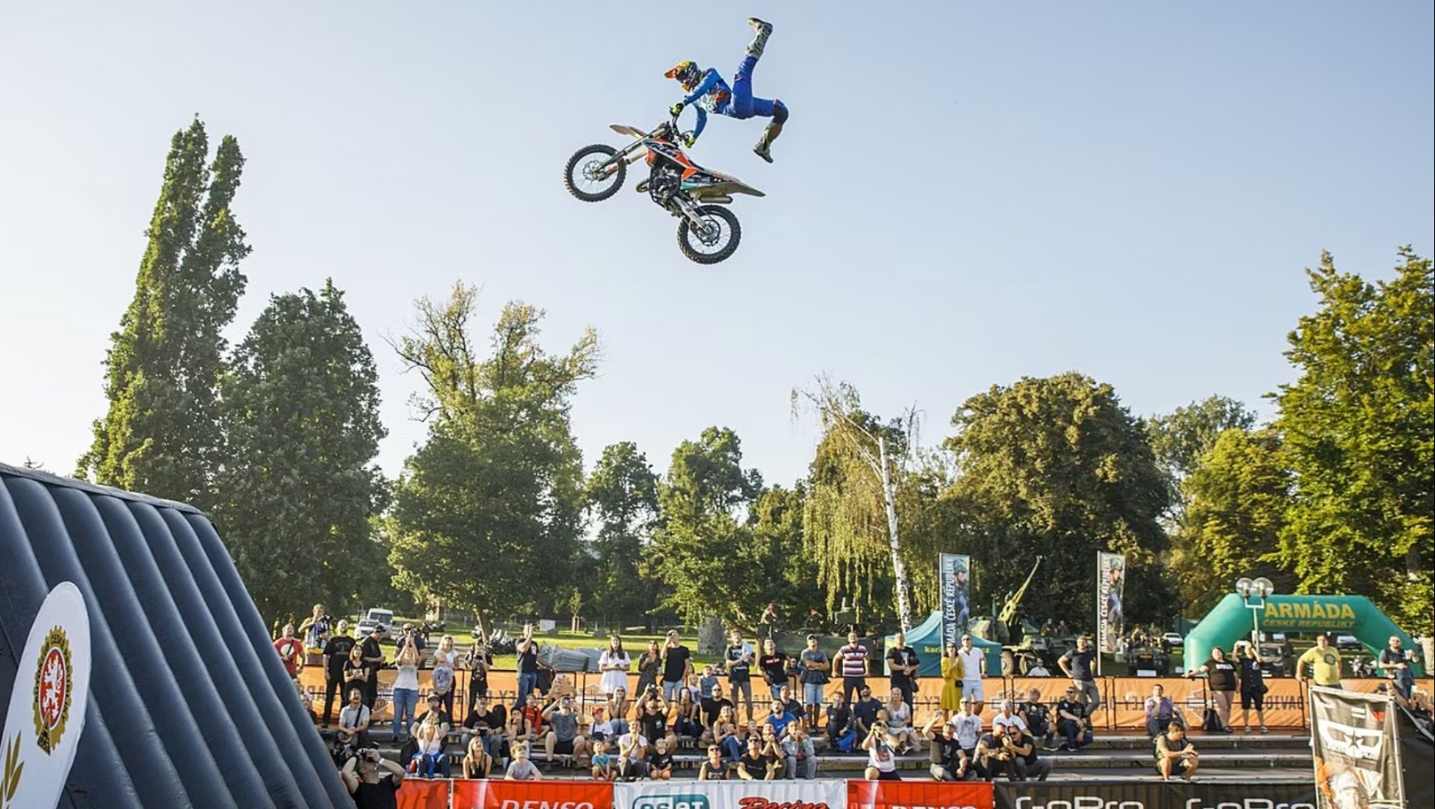
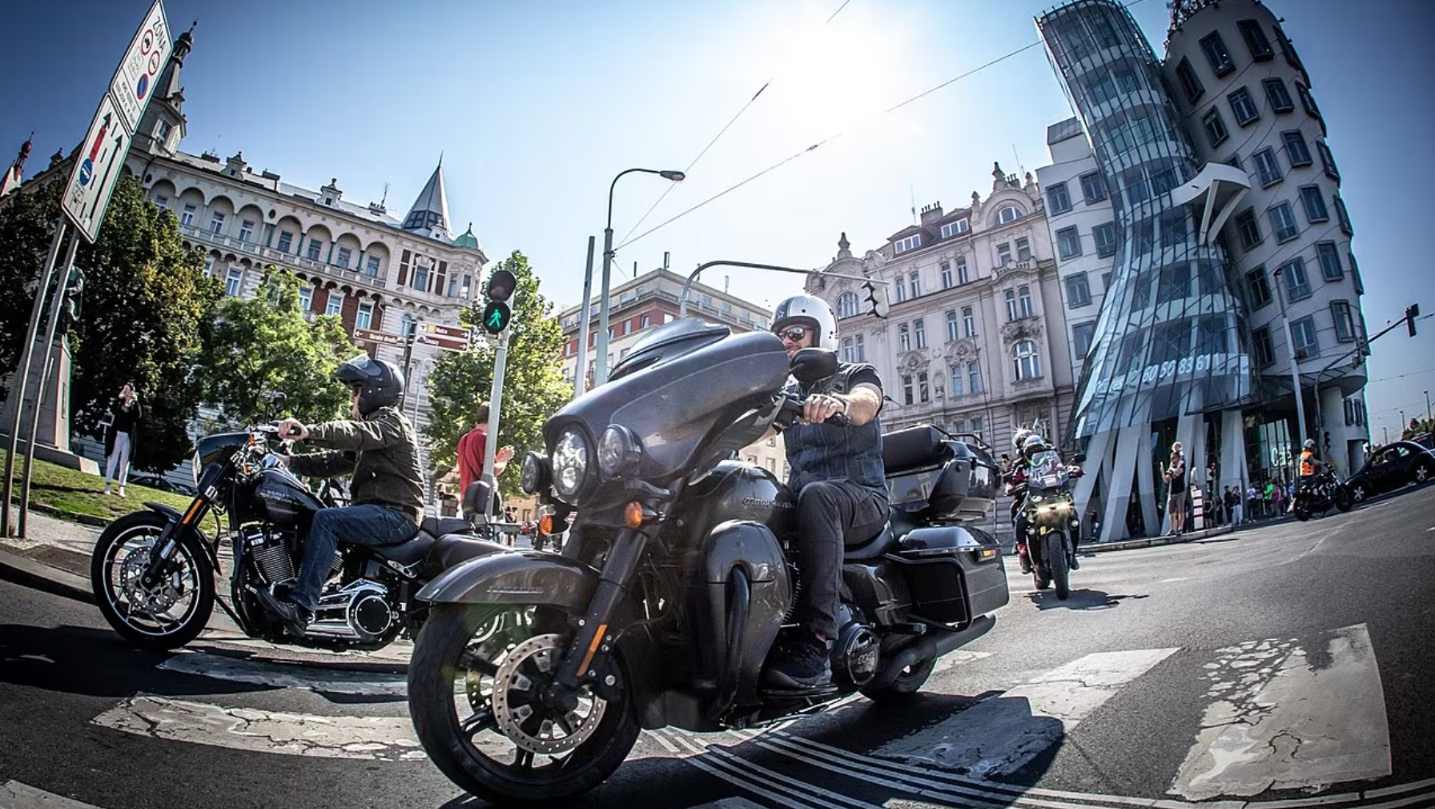
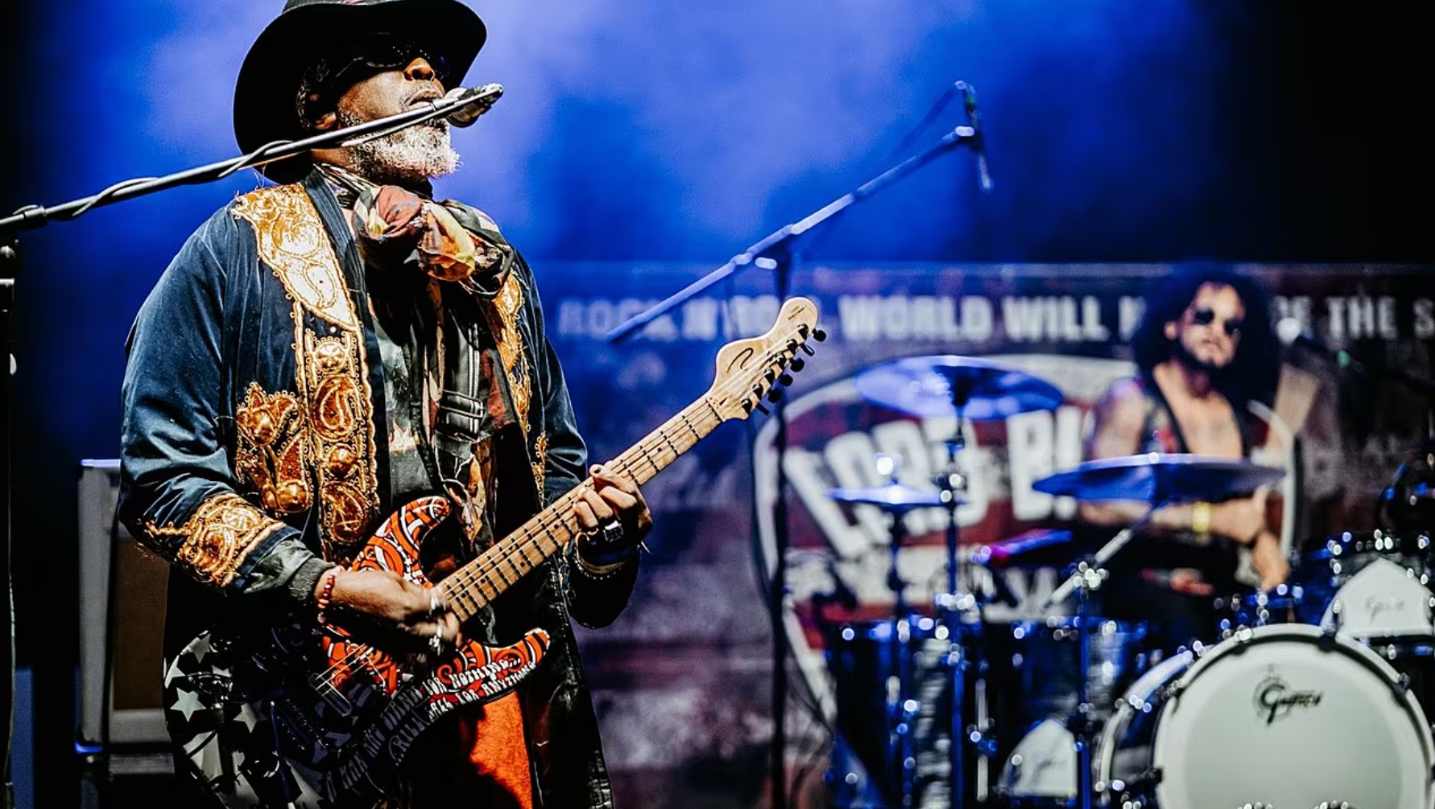
Would you like us to write about your business? Find out more
A stone’s throw from the Castle, close to Bílá Hora, lies one of the most interesting and less frequented by tourists districts of the city.
“In Břevnov, in front of my large window, right behind the tiny garden – from autumn until the following summer – it used to be verdant with wheat. Behind the field there were abandoned quarries, which in summer, were full of slender mullein. Behind the quarries, a road went down the valley until it came to other fields and then a small rocky wood. When in March, I opened the window and sat on my armchair staring out, I could hear the larks singing, just as if I were sitting in front of the stage at the National Theatre”.
It is with these words, that the Czech poet Jaroslav Seifert, Nobel Prize for Literature in 1984, describes Břevnov at the time of his youth, in the book of 1982 “All the beauties of the world”.
The district of Břevnov lies just a few tram stops from the Prague Castle, to the west, in the District of Prague 6. The urban landscape, just outside the historical and tourist centre, summarizes almost suddenly the typical features of the city, made for the daily life of its inhabitants, with its activities and rhythms.
But rather than a district area, Břevnov seems more like a small village in the centre of Prague, consisting of a main street, Bělohorská – seat of the main commercial activities of the suburb – that, with its over 4 km length, connects Malovanka with Bílá Hora, and many side streets with small buildings and houses interspersed with gardens and green spaces.
We get off the n° 22 tram at “U Kaštanu”, the second stop after “Marjánka”, which is the gateway to the neighbourhood. A stop in the most famous pub in the area is mandatory. It is set in a garden a short walk away, where in summer, you can sit on the benches and enjoy the shade under the horse-chestnut trees that have given the name (“U Kaštanu”) to both the brewery and the adjacent cultural centre, that offers a full calendar of events, ranging from live music (especially jazz), to theatrical performances.
It was in this particular place that on April 7, 1878, Ladislav Zápotocký, Josef Boleslav Pecka, Josef Hybeš and others founded the Czech Social Democratic Party, which is represented today by the Čssd.
Břevnov offers food lovers quite a good choice of food. As regards the Czech “hospoda”, besides “U Kaštanu”, it is important to remember “U Presidentů”, a picturesque brewery-restaurant frequented by local people, which is fully decorated with memorabilia, pictures and paintings of the presidents that took office since the foundation of the Czechoslovak Republic.
But, in the district, there are also restaurants, which offer ethnic food, including at least an Indian restaurant, a Vietnamese and a North African one, as well as others.
For those who love good beer, of particular interest is the brewery located inside Břevnov Monastery (Břevnovský klášter), famous for the excellent quality of its beer and for the variety it produces. The brewery is named after St. Adalbert, bishop of Prague (sv. Vojtěch) and is one of the oldest breweries in Bohemia.
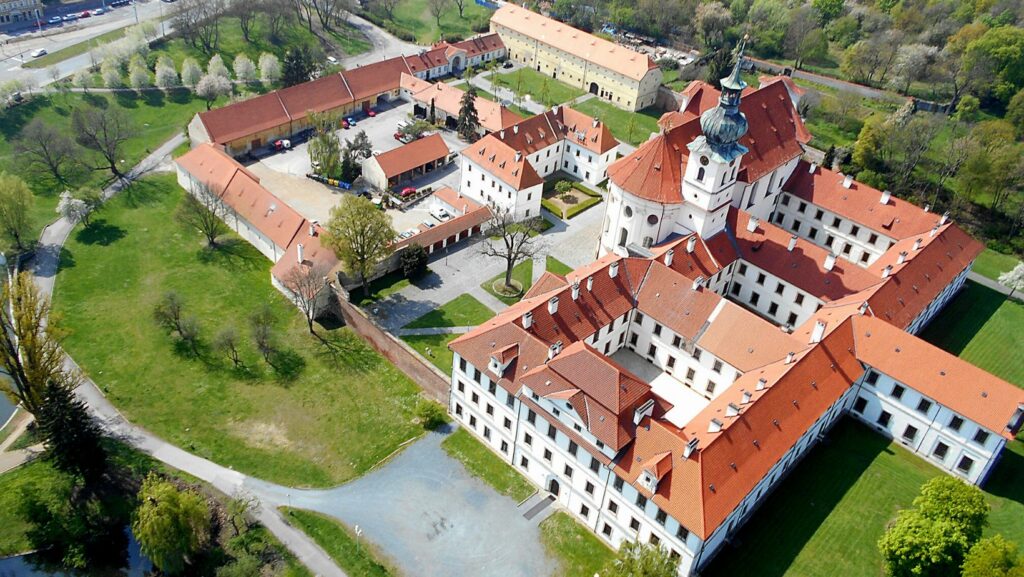
Břevnovský klášter
It was founded in the tenth century, during the construction of the Monastery, but over the centuries, the production of “Břevnovský pivovar” beer was suspended several times. Since 2011, however, it has become fully operational again, with an annual production of about 3,000 hectolitres.
One of the main attractions of Břevnov is its Monastery (or Abbey), that houses the brewery, which belongs to the Benedictine Order. It was founded in 993 by bishop St. Adalbert and within the religious complex, there is the Basilica of St. Margaret, to which the Monastery is dedicated.
The Basilica houses the relics of the Saint and is the most important spiritual centre of the Prague district and over time, settlements began to develop in the area around Břevnovský klášter. Also dating back to the tenth century is the first mention of the name Břevnov, which was elevated to the rank of town in 1907 by Emperor Franz Joseph of Austria and then integrated into “Greater Prague” in the year 1922.
The monastery was destroyed during the Hussite wars and rebuilt in the mid-fifteenth century. Renovated again recently, the religious complex – that stands near the source of the Brusnice stream – is surrounded by a beautiful park, that is open to the public and where it is possible to admire secular trees and relax in the peaceful and quiet atmosphere. In the park there is also a gallery that is often used to host art exhibitions.
In the large garden, adjacent to the monastery, there is Břevnov cemetery (Břevnovský hřbitov), that can be accessed from U Vojtěšky street. The cemetery, which was founded in 1739, is one of the most famous in Prague. Inside it, there is the Chapel of St. Lazarus that was built in 1762 by the Italian architect Anselmo Lurago, the artist who also participated in the construction of Kinský Palace.
Among the Czech personalities who are buried there, there is the philosopher Jan Patočka, the mathematician Vojtěch Jarník and the Czech poet and playwright Josef Topol, who died recently.
But there are not only historical monuments in Břevnov. A symbol of coexistence between the old and the new is the Institute of Macromolecular Chemistry of the Czech Academy of Sciences, a highly-advanced centre for research in this sector. The Institute was founded in 1959 by a few scientists, including Professor Otto Wichterle, inventor of the soft Hidrogel contact lenses.
Although the district of Břevnov has seen much of its rural space being reduced over the years, it is still one of the “greenest” areas of the Czech capital. Beyond Tomanova street, which delimits a part of the city centre of Břevnov, there is Ladronka park, which gets its name from the old farm and estate that are still there.
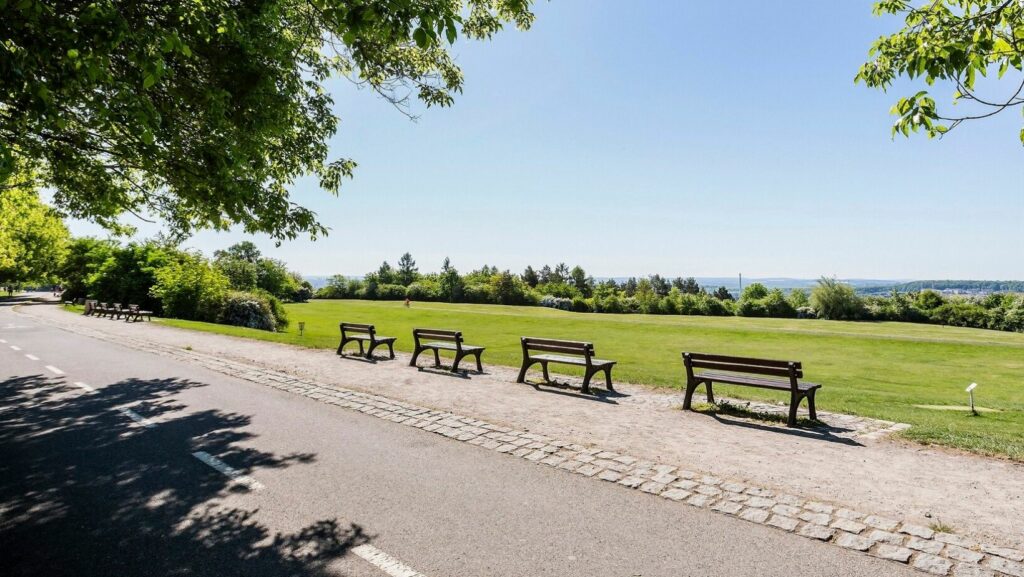
Ladronka park
The park offers a wonderful view of the areas of Motol and Skalka. Recently renovated, this large green space – which often hosts cultural events at various times of the year – has a long bike path that cyclists and skaters enjoy using, especially at weekends. But the whole area is frequented by sports enthusiasts of all kinds, and it is not uncommon to see groups of people, on the grass or under the trees, practising, for example, yoga or fencing.
Another park in the neighbourhood is Kajetánka, an old farm land, that nowadays has been partly used to build a modern residential complex. The area was once the site of a monastery of the order of the Theatine Fathers, and inside it, there is the ancient villa that was renovated in 2011 and which overlooks a small lake along the Brusnice stream.

A short distance from the Prague Castle – which is visited every day by thousands of tourists – Břevnov offers the possibility to go for long walks in its parks or along the streets of the upper side of the neighbourhood, where modern houses alternate with old buildings, surrounded by small gardens – in a suspended atmosphere between the almost forgotten Prague of a few decades ago and the continuously evolving Prague of today.
Would you like us to write about your business? Find out more
A recent comprehensive study of 53 countries has revealed that the Czech Republic is one of the least welcoming places for expats globally.
Foreigners cite a lack of tolerance among Czechs as a major issue, compounded by rigid authorities and a difficult language. But is the situation truly as bleak as it seems, or is there more to the story?
The Expat Insider 2024 report, conducted by the InterNations community, which connects expats across 420 cities worldwide, evaluated various aspects of life abroad across five indices. These included factors such as Ease of Settlement, Quality of Life, and Essentials for Expats’ Lives.
InterNations surveyed over 10,000 expats, ranging from young professionals to retirees, from diverse socioeconomic and cultural backgrounds. The goal was to gather their perspectives on life in their host countries.
This year, the Czech Republic was ranked as the 15th worst country for expats. This marks a dramatic drop of 18 places from the previous year.
According to InterNations, the Czech Republic is the seventh most difficult country for expats to settle in. The country performed particularly poorly in terms of cultural acceptance and how welcomed expats feel.
Out of the 53 countries surveyed, the Czech Republic ranked 47th in both of these categories. Below-average scores in Housing, Digital Life, and Administrative Tasks contributed to the Czech Republic being the fifth most challenging country overall for expats to settle in.
A significant concern is the perceived unfriendliness of locals. According to InterNations, the Czech Republic is the third least friendly country surveyed, surpassed only by Austria and Kuwait in terms of native hostility. Making friends here also proves difficult, with the Czech Republic ranking 40th out of 53 countries in this regard.
Language: The Biggest Barrier
Language appears to be the most significant challenge for expats. InterNations found that the Czech Republic is the second most difficult country in the world for expats to learn the local language, with only Hungarian being more challenging. Furthermore, living in the Czech Republic without knowing the language is particularly tough.
A Good Place to Work with Excellent Transport
Despite these challenges, the study found areas where the Czech Republic performed well. The country ranked 15th in the Index of Culture and Satisfaction with Work and 16th in the Work and Leisure category.
It also achieved a commendable 16th place out of 53 countries in Career Opportunities, surpassing countries like Singapore, Germany, and Switzerland. Overall, the Czech Republic was ranked as the 15th best country in the world for working life.
Would you like us to write about your business? Find out more
A show in the air and on the ground, full of fighters and training demonstrations by special military units.
Examples of the most advanced techniques and equipment of our allied armies, police, paramedics, firefighters, demonstrating their art in attractive dynamic displays, talks, film screenings and workshops – all this awaits you at the Ostrava NATO Days on September 21-22.
This biggest show of safety and security in Central Europe includes Czech Republic Air Force Days. An aerial acrobatics group will show off their art, and spectators will be introduced to police tactical units, special units of the Czech and Slovak prison service, the Castle Guards motorcycle squad and other elite units.
Last year, 110,000 visitors attended the event with the participation of nineteen partner countries and under the NATO partnership. In total, nearly a hundred aircraft and a thousand different types of other equipment were on display.
The event has long been supported by the Ministry of Defense of the Czech Republic, the Ministry of Foreign Affairs of the Czech Republic, the Moravian-Silesian Region, the Statutory City of Ostrava, and NATO’s Public Diplomacy Division.
In addition to these institutions, long-term partners also include companies from the commercial sector.
Admission to the show is free.

Embraer C-390 Millennium

Airbus A400M ATLAS
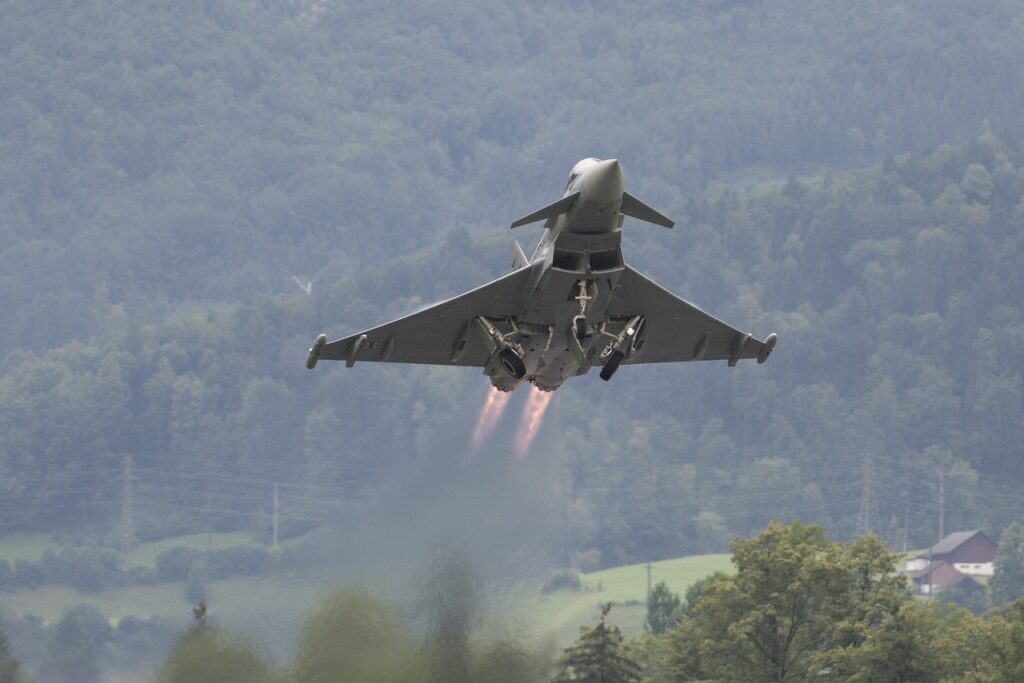
Eurofighter Typhoon
Would you like us to write about your business? Find out more
The recent awareness campaign for the Prague Metro emergency button, initiated by the police and the media following an incident involving a blind man, has already proven its worth.
On Saturday, alert passengers saved the life of a drunk woman who fell onto the tracks at the Nádraží Veleslavín metro station. Subsequent tests revealed that she had a blood alcohol level of 2.5 per mille.
According to police spokeswoman Eva Kropáčová, the incident occurred on Saturday, August 17, shortly after 6 p.m. The metro station dispatcher reported to the emergency line 158 that a woman had fallen onto the tracks.
Passengers on the platform immediately called for help, and one woman, after notifying another passenger, ran to the emergency button and pressed it, stopping the metro traffic.
One witness ran to the control room, where they informed the dispatcher and called for paramedics and police. A doctor who was traveling on the metro also came to the woman’s aid, providing medical assistance until firefighters and police officers arrived and transported her to an ambulance.
This incident follows a tragic event last week at the Křižíkova station, where a blind man was killed after falling onto the tracks. Passengers had attempted to call for help using the emergency line, but were unaware that pressing the emergency button would have been a quicker way to stop the approaching train.
The emergency buttons are covered with protective glass that can be easily broken with a push, allowing access to the button. When pressed, the train protection system is triggered, stopping the train or preventing it from moving.
Would you like us to write about your business? Find out more
Mark your calendars for a delightful evening of musical enchantment!
On Wednesday, August 28th, at 5 pm, the Wallenstein Garden in Prague will come alive with the melodies of the Prague Symphony Orchestra.
The repertoire includes Smetana’s composition, “Dances from The Bartered Bride,” as well as evocative film music that has left a mark on cinematic history.
Attendees can look forward to an overture from Giacomo Puccini’s opera “O mio babbino caro.” Furthermore, the event will transport listeners through time with enchanting melodies from cinematic masterpieces like “Forrest Gump” and “Angel of the Lord 2.”
The concert is held in cooperation with the Senate of the Parliament of the Czech Republic and under the auspices of Senator Jiří Drahoš. Voluntary admission is payable at the door.
More info here
Here’s a glimpse of the program:
Bedřich Smetana: Dances from The Bartered Bride
Antonín Dvořák: Carnival
Leoš Janáček: The Lachian Dances
Léo Delibes: Lakmé – The Flower Duet
Giacomo Puccini: Gianni Schicchi – O mio babbino caro
Charles Gounod: Roméo et Juliette – Je veux vivre
Georges Bizet: Carmen – Habanera, Seguidilla
Film music: Angelica, Forrest Gump, Angel of the Lord 2, Arabela
–
Doubravka Novotná | soprano
Jarmila Vantuchová | mezzo-soprano
Prague Symphony Orchestra
Jan Kučera | conductor
Would you like us to write about your business? Find out more
A memorial by sculptor Jiří Sozanský, dedicated to the victims of the 1968 and 1969 occupations, has been unveiled near the Kampa Museum in Prague.
The sculpture commemorates the lives lost during the brutal invasion of Czechoslovakia by Warsaw Pact forces and the subsequent crackdown by Czechoslovak authorities.
The memorial, first revealed last year at the Army Museum to mark the 55th anniversary of the invasion, now stands on the embankment, bearing the names of 147 individuals who perished in 1968.
The installation also includes the names of six people killed in 1969 during protests against the occupation.
Sozanský, known for his focus on themes of war and oppression, has made significant contributions to public memory with works like the Memorial to the Victims of Communism and the Memorial to Political Prisoners in Valdice. The creation of this latest sculpture, titled “68/69,” was entirely self-funded by the artist.
The invasion of Czechoslovakia began on the night of August 21, 1968, leading to the deaths of dozens of Czechoslovak citizens on the first day alone, either in clashes with soldiers or in traffic accidents caused by the occupying forces.
A year later, from August 19 to 21, 1969, a wave of protest demonstrations swept the nation, marking the first anniversary of the occupation.
The regime’s response to these protests was brutal. According to recent historical research, seven people were killed during the demonstrations—five were shot dead, a woman on a scooter collided with an armored personnel carrier near Prague, and an unidentified soldier also lost his life.
To suppress the unrest, 20,000 soldiers, 27,000 militiamen, and numerous police and Interior Ministry units were deployed. Approximately 2,400 people were detained during the crackdown.
Would you like us to write about your business? Find out more
Prague is gearing up for the twelfth edition of the Prague Coffee Festival, set to take place over the weekend of October 12th and 13th, 2024.
The event promises a rich experience for coffee lovers, offering a chance to sample more than one hundred varieties of coffee from around the globe.
This year, the festival will be held at Holešovická Market (Holešovická tržnice, Bubenské nábřeží 306/13), with doors open from 9:00 AM to 6:00 PM on both days.
Visitors can expect a diverse selection of coffees from 50 Czech and international roasters.
The festival will feature dozens of coffee types, brewed using both traditional espresso methods and alternative techniques such as siphon, French press, pour-over, and Aeropress, all in one location.
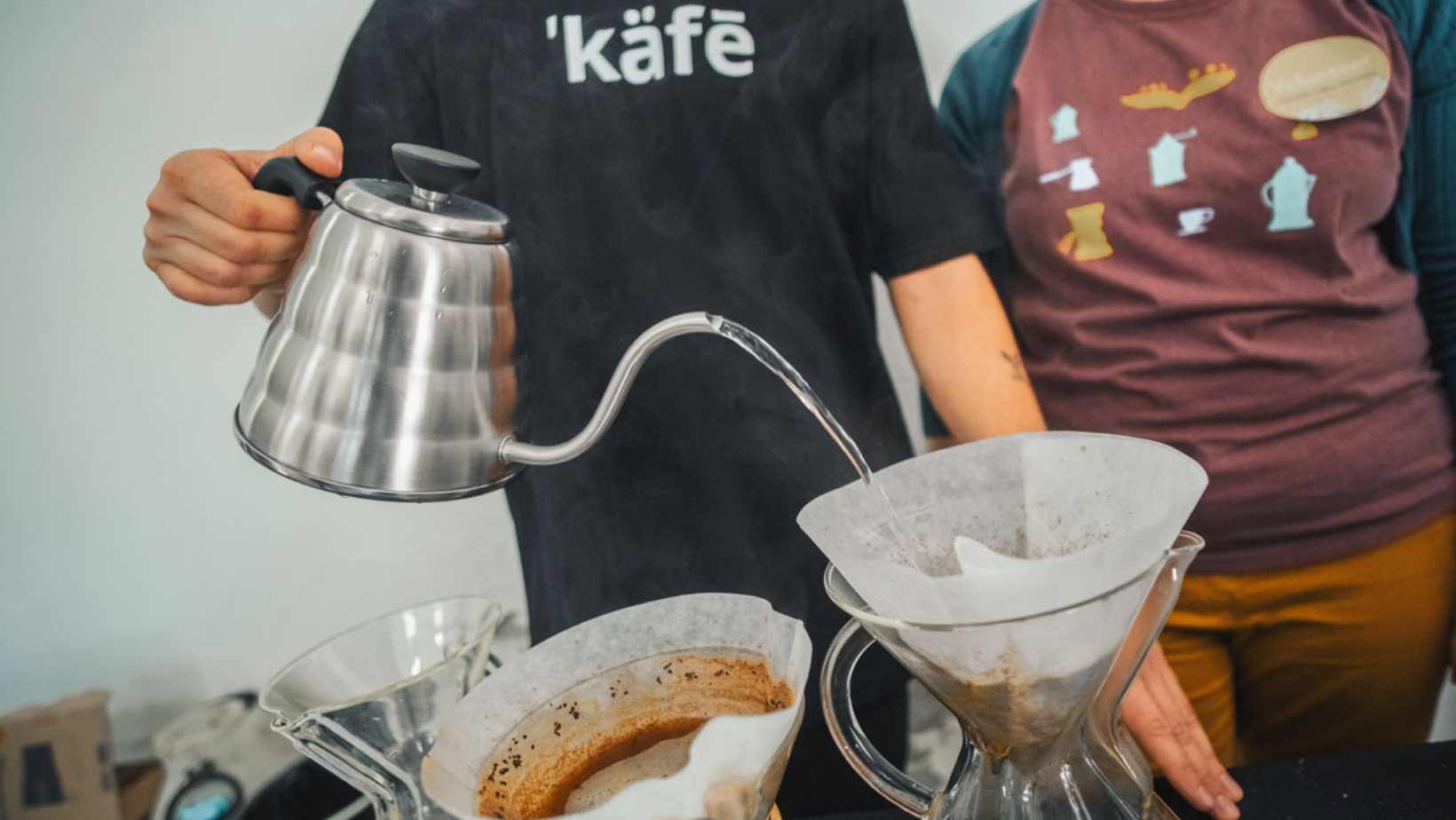
In addition to tasting sessions, the festival will offer a packed schedule of events including lectures on coffee roasting and preparation, hands-on master classes, live musical performances, and more.
Tickets are already on sale. A single-day pass costs 449 CZK, while a two-day pass is available for 619 CZK.
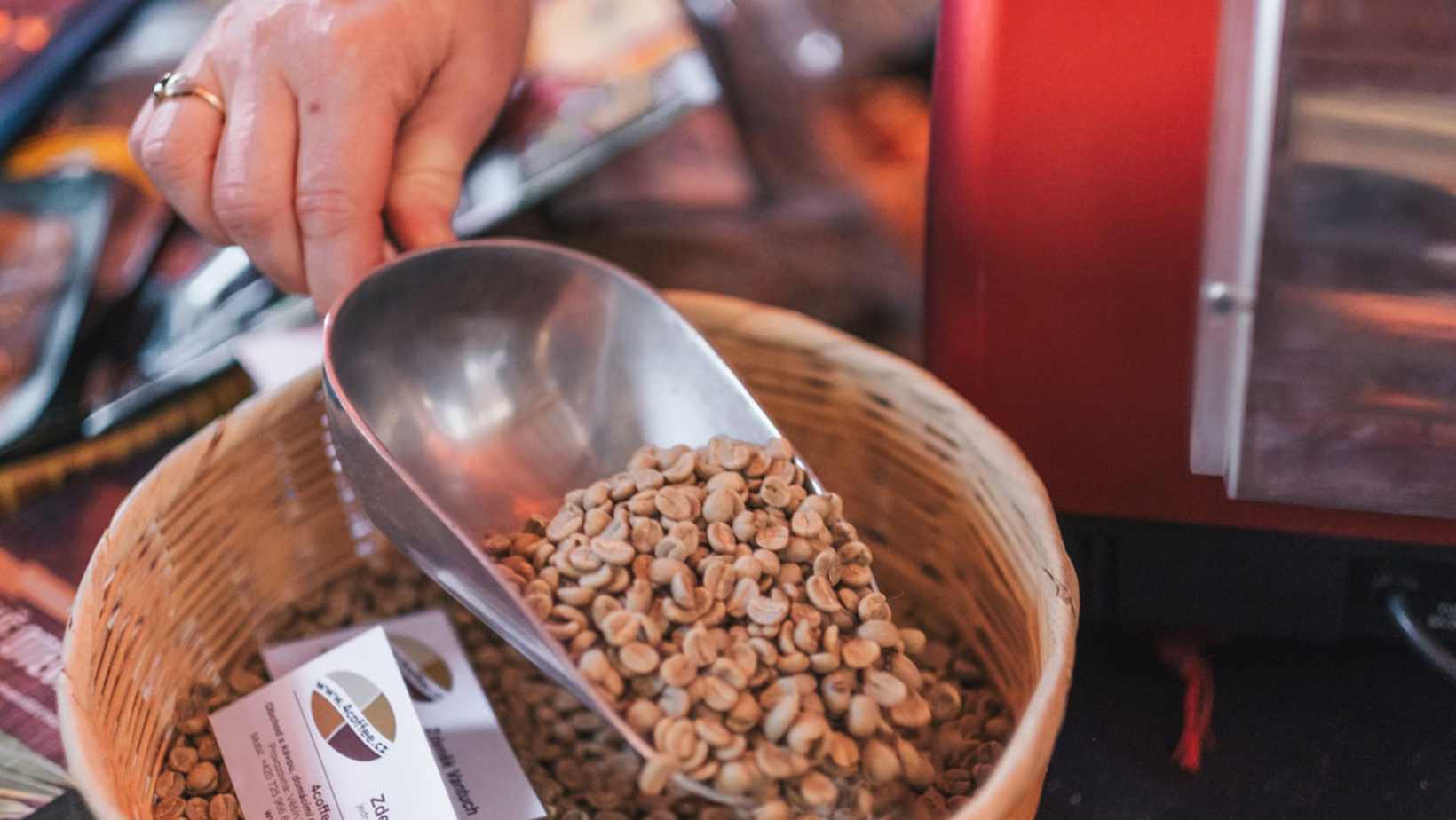
With your ticket, you’ll enjoy unlimited tastings of the coffee varieties on offer and gain access to all festival activities. To purchase tickets, follow this link.
Would you like us to write about your business? Find out more
The Czech Republic will use some of the interest earned on Russian assets frozen in the European Union to buy hundreds of thousands more artillery shells for Ukraine.
Western countries blocked about $300 billion worth of sovereign Russian assets after Russia launched its full-scale invasion of Ukraine in February 2022.
EU countries are taking the interest earned on the assets -which include bonds and other securities bought by the Russian central bank – and putting it into an EU fund to aid Ukraine as it fights the Russian invasion.
EU governments agreed in June to use 1.4 billion euros ($1.5 billion) in profits generated by the assets to buy arms and pay for other kinds of support to Ukraine.
The Czech Defence Ministry said some of that money would be used for an effort it has been leading to buy artillery ammunition for Ukraine around the world, funded by Western partners.
“Thanks to proceeds from frozen Russian finances, released by the European Union, we will be able to supply several hundreds of thousands of large-calibre ammunition rounds to Ukraine,” minister Jana Cernochova said.
The ministry did not give further details but said deliveries would be made “in the coming months”, and thus would soon have an impact on the battlefield.
There was no immediate reaction to the Czech announcement from Moscow.
In July, the Kremlin called the plan to use interest earned on frozen Russian assets to fund military aid to Ukraine “theft” and said it would take legal action against anyone involved in the decision.
Ukraine received its first consignment of 50,000-100,000 shells under the initiative in June and deliveries continue every month, Czech officials have said.
Aside from the newly available funds, the Czechs had collected about 1.7 billion euros from western partners by May, which the government said was enough to buy half a million shells.


